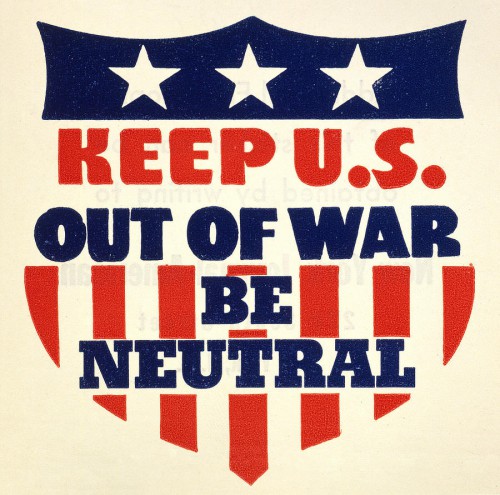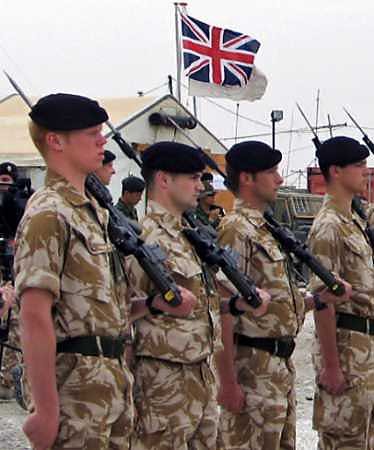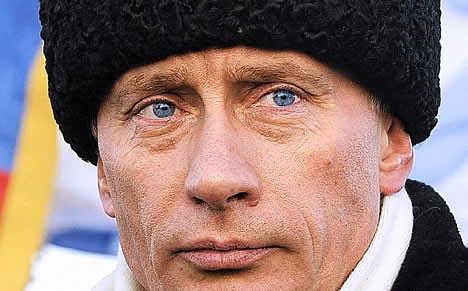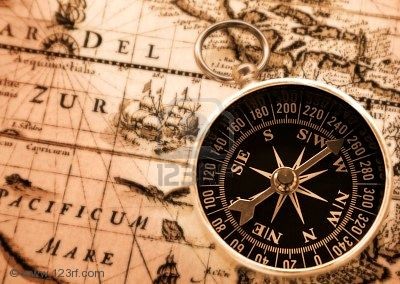Je rappelle le cadre théorique : les sociétés traditionnelles se seraient construites autour d'une victime émissaire sacrifiée à l'union de la collectivité. A cause de la révélation chrétienne d'après Girard, plus probablement, si l'on accepte le cadre girardien, à la suite d'une évolution où les Grecs et les deux Testaments jouèrent un rôle effectivement central, ce mécanisme a perdu de son efficacité (on peut d'ailleurs interpréter dans cette optique la honte et la gêne évidentes de ceux qui se débarrassèrent de Saddam Hussein) - d'où justement la naissance du concept de bouc émissaire, qui prouve que l'on est devenu plus conscient de l'existence de tels processus. Girard en vient donc au monde moderne :
"Entre les phénomènes d'expulsion atténuée que nous observons tous les jours dans notre monde et le rite antique du bouc émissaire aussi bien que mille autres rites du même genre, les analogies sont trop parfaites pour ne pas être réelles.
Lorsque nous soupçonnons nos voisins de céder à la tentation du bouc émissaire, nous les dénonçons avec indignation. Nous stigmatisons férocement les phénomènes de bouc émissaire dont nos voisins se rendent coupable, sans parvenir à nous passer nous-mêmes de victimes de rechange. Nous essayons tous de croire que nous n'avons que des rancunes légitimes et des haines justifiées mais nos certitudes en ce domaine sont plus fragiles que celles de nos ancêtres.
Nous pourrions utiliser avec délicatesse la perspicacité dont nous faisons preuve à l'égard de nos voisins, sans trop humilier ceux que nous prenons en flagrant délit de chasse au bouc émissaire mais, le plus souvent, nous faisons de notre savoir une arme, un moyen non seulement de perpétuer les vieux conflits mais de les élever au niveau supérieur de subtilité exigé par l'existence même de ce savoir, et par sa diffusion dans toute la société. Nous intégrons à nos système de défense, en somme, la problématique judéo-chrétienne. Au lieu de nous critiquer nous-mêmes, nous faisons un mauvais usage de notre savoir, nous le retournons contre autrui et nous pratiquons une chasse du bouc émissaire au second degré, une chasse aux chasseurs de bouc émissaire. La compassion obligatoire dans notre société autorise de nouvelles formes de cruauté. (...)
La perspicacité au sujet des boucs émissaires est une vraie supériorité de notre société sur toutes les sociétés antérieures, mais, comme tous les progrès du savoir, c'est aussi une occasion de mal aggravé. Moi qui dénonce les boucs émissaires de mes voisins avec une satisfaction mauvaise, je continue à tenir les miens pour objectivement coupables. Mes voisins, bien entendu, ne se font pas faute de dénoncer chez moi la perspicacité sélective que je dénonce chez eux.
Les phénomènes de bouc émissaire ne peuvent survivre dans bien des cas qu'en se faisant plus subtils, en égarant dans des méandres toujours plus complexes la réflexion morale qui les suit comme leur ombre. Nous ne pourrions plus recourir à un malheureux bouc pour nous débarrasser de nos ressentiments, nous avons besoin de procédures moins comiquement évidentes.
C'est la privation des mécanismes victimaires et à ses conséquences terribles que Jésus fait allusion, je pense, quand il présente l'avenir du monde christianisé en termes de conflits entre les êtres les plus proches.
N'allez pas croire que je suis venu apporter la paix sur la terre ; je ne suis pas venu apporter la paix, mais la guerre. Je suis venu opposer l'homme à son père, la fille à sa mère et à la bru à sa belle-mère : on aura pour ennemi les gens de sa famille. (Mt 10, 34-36)
Dans un univers privé de protections sacrificielles, les rivalités mimétiques se font souvent moins violentes mais s'insinuent jusque dans les rapports les plus intimes. C'est ce qui explique le détail du texte que je viens de citer ; le fils en guerre contre son père, la fille contre sa mère, etc. Les rapports les plus intimes se transforment en oppositions symétriques, en rapport de doubles, de jumeaux ennemis. Ce texte nous permet de repérer la vraie genèse de ce qu'on appelle la psychologie moderne."
Parmi mes nombreux projets on trouve une étude de l'influence de Girard sur Muray, une confrontation systématique de Girard et de Dumont, une synthèse critique sur les thèses de Girard. Anticipons sur celle-ci en relevant dès aujourd'hui ce paradoxe d'une théorie dont les fondements (le mimétisme notamment) sont discutables - et discutés - mais dont la valeur explicative semble difficilement contestable : relier ainsi, en quelques paragraphes, les problèmes de mondialisation et d'impérialisme, les processus victimaires dans les sociétés occidentales, et les névroses familiales, n'est pas une fin en soi, n'est en rien une garantie de véracité, mais stimule me semble-t-il la réflexion.
Sans ordre, quelques évocations précédentes de René Girard :
- les libéraux-libertaires ;
- une pierre dans le jardin de Marcel Gauchet ;
- René Girard et les associations gay ;
- distinguo Girard-Redeker - je découvre d'ailleurs des commentaires que je n'avais jamais lus, pardon de n'y avoir pas répondus (un petit mail peut être utile lorsqu'on laisse un commentaire tardif par rapport à la rédaction du texte).







 Londres vient de rejeter le requête de Washington: les Etats-Unis ne pourront pas utiliser les bases militaires britanniques pour d’éventuelles actions contre l’Iran. Les Britanniques avancent pour argument que toute attaque préventive contre Téhéran constituerait une violation du droit international, vu que la République Islamique ne représente pas, ajoutent-ils, une “menace claire et immédiate”. C’est du moins ce qu’écrit le “Guardian”, qui cite des sources gouvernementales britanniques. Selon le célèbre quotidien, Washington aurait demandé à pouvoir utiliser les bases militaires britanniques de Chypre, celles de l’Ile de l’Ascension (au milieu de l’Atlantique) et de Diego Garcia dans l’Océan Indien. A la suite de cette requête américaine, Londres aurait commandé une sorte d’audit légal au Procureur général du Royaume, puis à Downing Street, au Foreign Office et au ministère de la Défense. “La Grande-Bretagne violerait le droit international si elle venait en aide à une opération qui équivaudrait à une attaque préventive contre l’Iran”, a déclaré un haut fonctionnaire britannique au “Guardian”; et il ajoute: “le gouvernement a utilisé cet argument pour rejeter les demandes américaines”.
Londres vient de rejeter le requête de Washington: les Etats-Unis ne pourront pas utiliser les bases militaires britanniques pour d’éventuelles actions contre l’Iran. Les Britanniques avancent pour argument que toute attaque préventive contre Téhéran constituerait une violation du droit international, vu que la République Islamique ne représente pas, ajoutent-ils, une “menace claire et immédiate”. C’est du moins ce qu’écrit le “Guardian”, qui cite des sources gouvernementales britanniques. Selon le célèbre quotidien, Washington aurait demandé à pouvoir utiliser les bases militaires britanniques de Chypre, celles de l’Ile de l’Ascension (au milieu de l’Atlantique) et de Diego Garcia dans l’Océan Indien. A la suite de cette requête américaine, Londres aurait commandé une sorte d’audit légal au Procureur général du Royaume, puis à Downing Street, au Foreign Office et au ministère de la Défense. “La Grande-Bretagne violerait le droit international si elle venait en aide à une opération qui équivaudrait à une attaque préventive contre l’Iran”, a déclaré un haut fonctionnaire britannique au “Guardian”; et il ajoute: “le gouvernement a utilisé cet argument pour rejeter les demandes américaines”. 


 Lente en van de Egyptische politiek. Ook al Qaradawi heeft heel wat aan Al Jazeera te danken en aan de media-aandacht die hij erdoor kreeg. Wekelijks was hij te zien en te horen in een uitzending “de sjaria en het leven”, waar hij vragen beantwoordde van toehoorders uit de ganse islamitische wereld.
Lente en van de Egyptische politiek. Ook al Qaradawi heeft heel wat aan Al Jazeera te danken en aan de media-aandacht die hij erdoor kreeg. Wekelijks was hij te zien en te horen in een uitzending “de sjaria en het leven”, waar hij vragen beantwoordde van toehoorders uit de ganse islamitische wereld. Neen, daarmee houdt het niet op, want ook in het conflict in Aghanistan is Qatar actief. Eerste zichtbare resultaat hiervan: de radikaal-islamitische Taliban opende in januari een officiële vertegenwoordiging in het emiraat. Via dit kantoor zouden vredesgesprekken op gang komen. En in die vredesgesprekken zouden ook de VSA en de EU kunnen worden betrokken. Kaboel houdt de boot voorlopig af en heeft aangedrongen op bilaterale gesprekken …met Qatar.
Neen, daarmee houdt het niet op, want ook in het conflict in Aghanistan is Qatar actief. Eerste zichtbare resultaat hiervan: de radikaal-islamitische Taliban opende in januari een officiële vertegenwoordiging in het emiraat. Via dit kantoor zouden vredesgesprekken op gang komen. En in die vredesgesprekken zouden ook de VSA en de EU kunnen worden betrokken. Kaboel houdt de boot voorlopig af en heeft aangedrongen op bilaterale gesprekken …met Qatar.